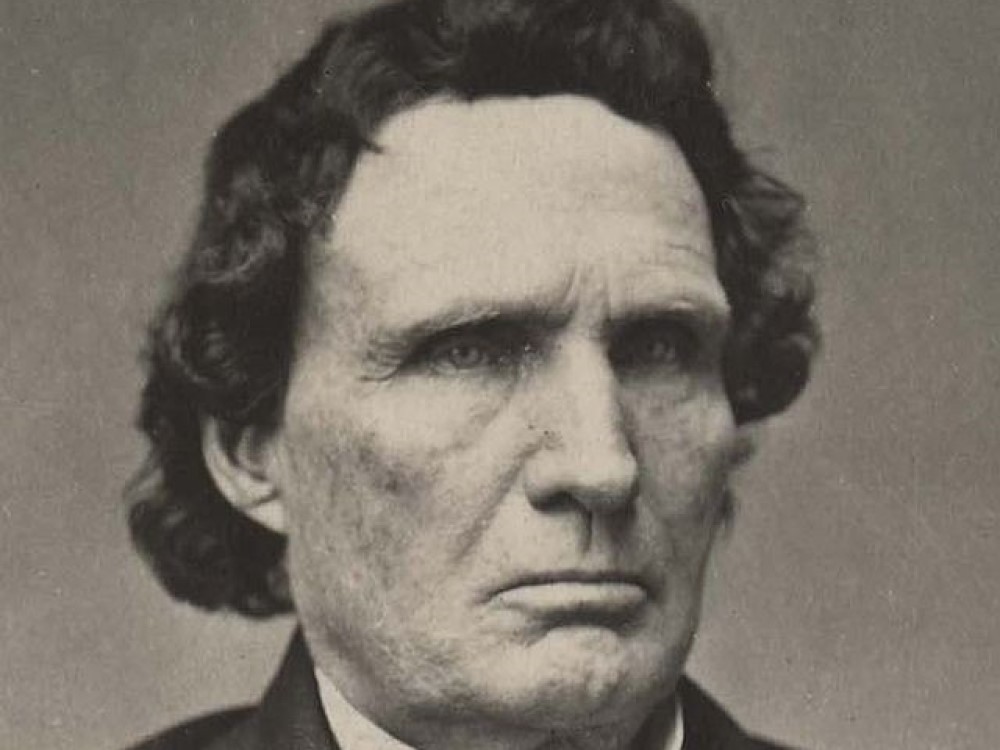
A man of single-minded purpose, Thaddeus Stevens spent his life vehemently fighting for racial and social equality in America. Born at the end of the 18th century, Stevens overcame poverty (and a club foot) to become a successful lawyer in Gettysburg, Pennsylvania. He was fiercely opposed to slavery and bondage, and even defended several fugitives without fee. In 1833 he entered the political sphere, serving first in the state legislature. Later, he was elected to the U.S. House of Representatives. After the Civil War broke out, he played a vital role in defeating the Confederacy through his efforts to pass legislation to finance ongoing military efforts. By the time the war was over, he had established himself as a major political figure and was dominating the House with his oratory skills, knowledge of parliamentary law, and sheer willpower. In fact, as a member of the Joint Committee on Reconstruction, he played crucial roles in the preparation of the Fourteenth (due process) Amendment to the Constitution and the military reconstruction acts of 1867. In one of his last political acts, he led Congress through the process of approving an appropriation for the purchase of Alaska from Russia.
In 1811, Stevens entered Dartmouth as a sophomore, having already completed his first year of college studies at the University of Vermont. Unfortunately, unlike many of his rich classmates, he was very poor. He never had enough money for books, let alone money to socialize with other students, which resulted in him being an outcast at Dartmouth. But while he struggled socially, he excelled in academics, ranking as one of the top students in his class. In 1814, he graduated from Dartmouth and was chosen as a speaker at the commencement ceremony.
The connection between Dartmouth and Stevens remains strong to this day, as the University's Rauner Special Collections Library has a number of his papers in its archive. According to Beverly Wilson Palmer, who spent five years collecting and editing the Thaddeus Stevens papers, the political leader didn’t leave an extensive collection of personal papers after his death. And yet, this collection includes such articles as: notes for a speech he delivered in 1866 on voting rights, a personal letter of recommendation written on Ways and Means Committee stationery, and the speech Stevens delivered at his 1814 Dartmouth commencement. These materials, besides being invaluable as historical documents, also serve as much-needed physical connections between one of Dartmouth's most accomplished alumni and the world of today.
